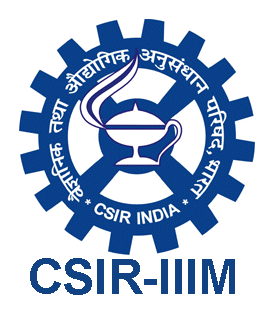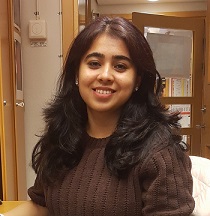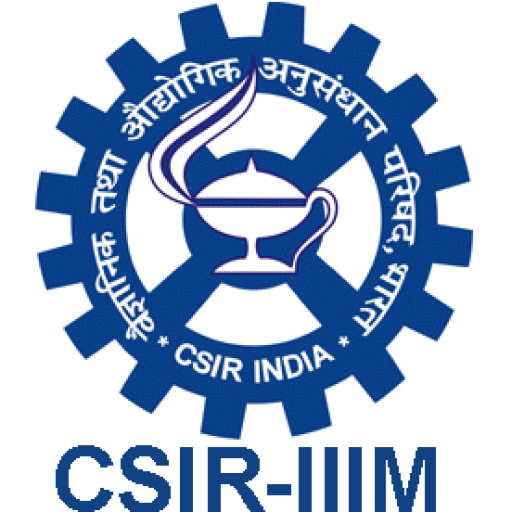
Dr. Farina Sultan
Scientist
Pharmacology Division
CSIR – Indian Institute of Integrative Medicine,Canal Road, Jammu – 180001
Email: farinasultan[dot]iiim[at]csir[dot]res[dot]in
Bio Sketch
Dr. Farina Sultan is a biologist with a keen interest in understanding energy balance in various physiological and pathological conditions. Since energy is central to all biological processes, its regulation is important in directing physiological processes, and any perturbation in metabolism may result in a diseased condition. In her PhD, she identified the role of fatty acid metabolism during the physiological pigmentation process, and the fatty acid pathway as a good target to prevent post-inflammatory hyperpigmentation (PIH). In her postdoctoral research, she screened for genes involved in metabolic regulation in adipocytes and muscles during starvation.
Currently, the lab we are working on two diseases – obesity and skin pigmentation.
Interest in metabolism derives to do research on obesity, which is excessive fat accumulation by adipocytes and chronic low-grade inflammation affecting peripheral tissues like muscles and the liver. Clinically, the treatment of obesity is a challenging task and is not very successful due to the associated side effects and weight regain after the removal of the therapy. A need to revisit the current treatment regime and identify natural molecules and plant based products will hold the future of obesity therapeutics.
Skin pigmentation disorders are crucial to understand because of the high prevalence in Indian subcontinent, their impact on quality of life, and their potential link to underlying systemic diseases. Metabolic diseases such as obesity and diabetes may causes hyper-pigmentation patches on neck. Lab work revolve around a keen interest to understand how these metabolic disorders can impact skin pigmentation and identifying novel natural products for targeting skin pigmentation disorders.
Education
| Degree | Subjects | University | Qualifying Year |
| PhD | Biological Sciences | CSIR-Institute of Genomics and Integrative Biology | 2020 |
| MSc | Biomedical Sciences | Dr B R Ambedkar Centre for Biomedical Research, Delhi University | 2014 |
| Bsc (H) | Biomedical Sciences | Bhaskarayacharya College of Applied Sciences, Delhi University | 2012 |
Position Held
| Position Held | Period | Organization |
| Scientist | Jan 2023 – present | CSIR-Indian Institute of Integrative Medicine |
| Postdoctoral Researcher | Jun 2022 – Dec 2022 | University of Gothenburg |
| Postdoctoral Fellow | Dec 2021 – May 2022 | DBT – Regional Centre for Biotechnology |
| Senior Research Fellow | Nov 2020 – Oct 2022 | CSIR-Institute of Genomics and Integrative Biology |
Area of Expertise
- Cellular assays and mechanisms regulating in skin pigmentation biology and inflammatory skin disorders.
- Metabolic assays and molecular techniques in studying metabolic perturbation of adipocytes and muscle cells in metabolic disorders.
- Screening of small molecules for targeting obesity, inflammation and melanogenesis.
- Expertise in metabolite tracing using pulse-chase labelling, metabolite extractions and analysis of mass spectrometry (LC-MS) and NMR data.
- Expertise in Confocal microscopy and flow cytometry-based assays
Projects
- CSIR-Seed Fund
- ICMR Small extramural grant
Duration 01/04/2024 – 31/03/2026
Duration 08/01/2025 – 07/01/2028
Publications
| Authors | Title | Journal |
| Komal, Thappa C, Sharma K, Begum S, Sultan F, Khajuria M, & Nalli Y. | Inulevs-A, a new sesquiterpene lactone from the leaves of Inula racemosa Hook. f.” |
2025 Natural Product Research https://doi.org/10.1080/14786419.2025.2569805 Impact Factor: 1.6 |
| Sultan F, Maji D, Phatake RS, Kumar K. | Pharmaceutical applications of microbial biosurfactants. |
2025 Int J Pharm. Impact factor: 5.2 |
| Tanwar J, Ahuja K, Sharma A, Sehgal P, Ranjan G, Sultan F, Agrawal A, Priya A, Venkatesan M, Yenamandra V, Singh A, Madesh M, Sivasubbu S, Motiani RK; | Mitochondrial calcium uptake orchestrates vertebrate pigmentation via transcriptional regulation of keratin filaments. |
2024; PLoS Biology https://doi.org/10.1371/journal.pbio.3002895 Impact factor: 7.4 |
| Ghazi M, Khanna S, Subramanium Y, Rengaraju J, Sultan F, Gupta I, Sharma K, Chandna S, Gokhale RS, Natarajan VT | Sustained pigmentation causes DNA damage and invokes polymerase PolK for repair in melanocytes. |
2023, NAR https://doi.org/10.1093/nar/gkad704 Impact Factor: 16.6 |
| Sultan F, Ahuja K, Motiani RK | Potential of targeting host cell calcium dynamics to curtail SARSCoV-2 infection and COVID-19 pathogenesis |
2022; Cell Calcium DOI: 10.1016/j.ceca.2022.102637 Impact Factor: 4.69 |
| Sultan F, Basu R, Murthy D, Kochar M, Attri KS, Aggarwal A, Kumari P, Dnyane P, Tanwar J, Motiani RK, Singh A, Gadgil G, Bhavesh NS, Singh PK, Natarajan VT, Gokhale RS | Temporal analysis of melanogenesis identifies fatty acid metabolism as key skin pigment regulator. |
2022; PLoS Biology. https://doi.org/10.1371/journal.pbio.3001634 Impact factor: 9.59 |
| Raja DA, Gotherwal V, Burse SA, Subramaniam YJ, Sultan F, Vats A Gautam H, Sharma B, Sharma S, Singh A, Sivasubbu S, Gokhale RS, Natarajan VT; 2019 | pH-controlled histone acetylation amplifies melanocyte differentiation downstream of MITF. |
2019; EMBO Reports. https://doi.org/10.15252/embr.201948333 Impact Factor : 7.4 |
Patents
| Inventors/ Contributors | Title | Description | Year |
|
Farina Sultan, Manisha Sharma, Rashmi S Bhosle, Vivek T. Natarajan, Rajesh S. Gokhale (IGIB-NII) |
Compositions having application against hyper-pigmentation |
Patent No. 495136 |
2020 |
Awards and Honours
- UGC-SRF 2016
- UGC-JRF 2013
- CSIR-JRF 2014
- CSIR-LS 2013
- Delhi University-Gold Medalist-Msc 2014
- “CSIR-Catch Them Young”- fellowship 2013
Students
- Kritika Sharma – JRF
- Zenab Bano – JRF
- Shahnawaz Ali – PA
 Screen Reader Access
Screen Reader Access

